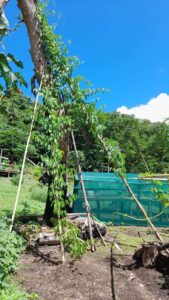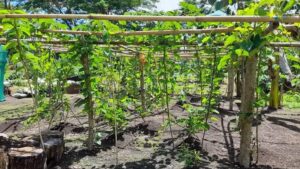Renowned Indigenous Fijian scholar Simione Sevudredre explains the tradition behind how we celebrate New Year
Written by Alex Elbourne on January 3, 2024
Mister Sevudredre recently took to Facebook with a wonderfully articulated reason for some of our New Years traditions.
FIJIAN NEW YEAR TRADITIONS – NA VAKATAWASE
Fijian New Year is known as Na Vakatawase. Many are not aware of its ancient roots in high Fijian culture. Allow me to share a few insights.Long before Christianity, indigenous Fijian culture tacitly held that there is a spiritual dimension and entities living in parallel with the tangible visible world. This dimension was generally understood to be NA VURAVURA VAKAYALO or NA VURAVURA TABOGO (the spiritual or unseen world).In this worldview, our forefathers saw God in everything from the sky, fauna and flora, rivers, lakes, the coast, sea, reefs, and aquatic and marine creatures.Once a year the ancient forefathers offered the first harvests (NA ISEVU) of the land to these various unseen deities. The deities went by different names – some locales did not have a name but offered their first fruits nonetheless to their nameless deities.The first fruit harvest was usually cultivated yam or UVI. Other wild species of yams like kwaile and tikau were also offered.But it was not just any yam uprooted for the purpose. Our forefathers set aside and consecrated land and yams specifically for the first fruit (e vakatabui na qele kei na isevu)
During the first month of the rabbitfish (Vulai Nuqa Lailai) which coincided with today’s December, the traditional oracle priest or BETE proclaimed SILENCE in the VANUA. The entire land would be in silence or VAKANOMODI in honour of the harvest deities visiting the sacred yam plantations.

Pic: Simione Sevudredre
These deities abhored pollution, noise, and conflict. In fact, children were taken to a location far from the plantation and all conflict and war ceased without further question.
The month long silence also instigated the intra tribal reconciliation protocols. Young men dug up their consecrated yams, approached their older siblings and sought peace, harmony and reconciliation with each other. This then snowballed from the youngest to the oldest during the month of silence. It was all in honour of the harvest deities whose blessings and bounty upon the land were not guaranteed UNLESS the people made peace and reconciled.By the end of the first cycle of the rabbitfish month (vulai nuqa lailai), not only had the entire tribe reconciled, there were huge mounds of yams piled as testament to the various levels of reconciliation.At the right phase of the next new moon, the oracle priest then proclaimed the exit of the harvest deities and their verdict on the land. If all was quiet, clean and peaceful, the land, sky, and waters would release its bounty.
To mark the exit of the harvest deities and celebrate their guaranteed blessings, the people celebrated with noise, singing and water splashing. Some places still retain their old celebratory name as “mekemekebulagi, mekemekebulago, serevoli, ilavo and saroivale” THIS IS THE WHY BEHIND THE “WHAT” IN FIJIAN NEW YEAR CELEBRATIONS – NA VAKATAWASE.
It may also explain the prevalence of the much beloved “qiri kava” bands who only appear at this time of the year.
The land rejoiced with the renewal of relationships, the macro intra tribal reconciliation and the assurance that the YABAKI or new year was eagerly anticipated. Feasts and indulgence in succulent fruits in seasons were the order of the day (or month).
Come February, the choicest yams were then taken to the God-Houses or Burekalou as token of renewed relations, reconciliation and harmony. This is observed in the VULAI SEVU – month of the first fruits, which coincides with today’s February.Our ancient forebears already knew that humility and unity had immense mana. It is no wonder then the Scriptures say “WHERE THERE IS UNITY, GOD COMMANDS HIS BLESSINGS!”Today, this ancient Fijian psychology has been utilzed by sporting teams in Fiji if they wish to attain success in international games. Of particular note is Ben Ryan’s “Sevens Heavens” where he discovered this profound approach which contributed to the Fiji 7s Rio Gold.As we set out for 2024, the value and mana in our old spiritual psychology premised on pursuing harmony (VEIWEKANI), maintaining goodwill (YALOVINAKA) and claiming it in traditional oratories (KACIVA) must not be neglected nor ignored.I conclude with a quote from Nigerian novelist Chinua Achebe –
When a tradition gathers enough strength to go on for centuries, you don’t just turn it off one day.





